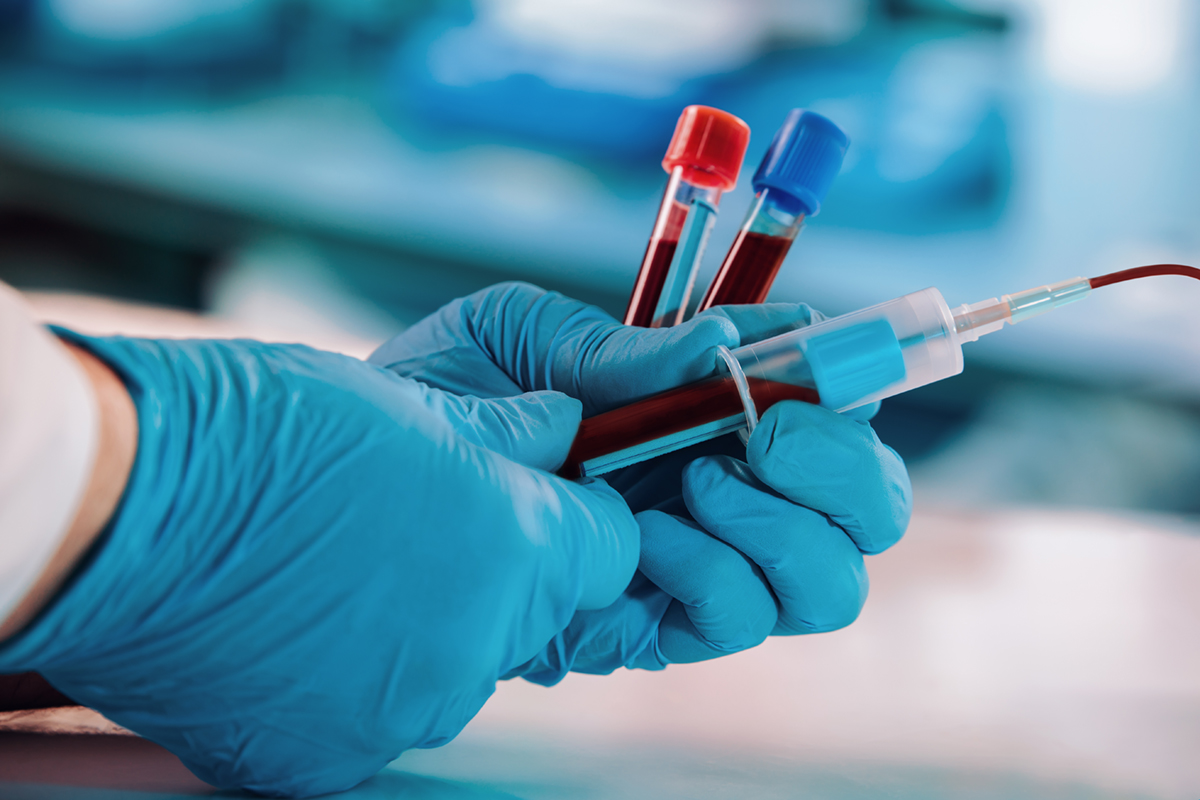
You are here
Press release
Monday August 12, 2024
An NIH-funded study suggests that new biomarkers are needed to distinguish this condition from others.
The National Institutes of Health funded a study that found that routine lab tests are not helpful in diagnosing COVID in people with symptoms. The study is part of NIH RECOVER: NIH Researching COVID for Enhancing Recovery Initiative Published in the Annals of Internal MedicineThe difficulty of diagnosing a new disease like long COVID is highlighted by.
David Goff, MD, PhD, director of the Division of Cardiovascular Sciences, National Heart, Lung, and Blood Institute, said, “Our challenge is to find biomarkers to help us diagnose COVID quickly and accurately to ensure that people with this disease receive the best possible care as soon as they can.” Long COVID can make it difficult to return to school or work, and even daily tasks can become a challenge. Therefore, the ability to diagnose quickly is critical.
The term “long COVID” refers to a range of health problems and symptoms that can persist for months or even years after infection with SARS-CoV-2 (the virus that causes COVID-19). There are no validated biomarkers for long COVID. Therefore, diagnosis of this condition requires a thorough history, a physical exam to determine symptoms, and laboratory tests to rule out other possible causes.
The researchers conducted the study to see whether SARS-CoV-2 infection would cause a change in biomarkers such as platelet counts or urine protein levels in people who had previously been infected with SARS-CoV-2 compared to people without prior infection.
The “More than 10,000 adults — Part of the RECOVER adult cohort Between October 2021 and October 2023, 83 sites in the United States were used for recruitment. Participants came from different geographic areas and diverse demographics. Many of the 8,746 people who had previously been infected with SARS-CoV-2 had other variants. Meanwhile, 1,348 were never infected.
The RECOVER adult cohort includes both individuals with and without prior SARS/CoV-2 infection, as well as individuals with and without long COVID. Nearly 19 % were found to have long COVID.
Participants completed baseline surveys, physical examinations, and standard blood and urine laboratory tests. Participants were followed for two years, with laboratory tests every six months, surveys at three-month intervals, and blood and urine laboratory tests performed quarterly. Laboratory tests performed included complete blood counts, metabolic panels, hemoglobin A1c, urinalysis, and urine albumin-to-creatinine ratio.
The lab tests, the researchers said, detected very few differences in biomarkers between people with and without prior infections. The team found that prior infections were associated with modest increases in HbA1c (a measure of average blood sugar over two to three months), but those increases disappeared when the researchers excluded people with diabetes.
The researchers also found that participants who had previously been infected had a slight increase in uACR (a measure of kidney dysfunction), but this was only seen in a small minority and may have come from the severity of their initial infection.
The researchers used a secondary study to look only at people in the infected group to identify the difference between COVID patients who had long-term symptoms and those who did not. The researchers used a COVID Index – Long versionThe study identified twelve symptoms that best identify people with long COVID. The study found no significant differences between participants who had previously been infected with COVID and those who were not.
Future RECOVER work will use biobanking of cohort samples, such as cerebrospinal fluid and blood, to create more lab tests that can help us understand the pathophysiology of COVID, said Kristine Erlandson, MD, professor of medicine-infectious diseases at the University of Colorado Anschutz Medical Campus in Aurora.
The NIH funded the research reported in this release under grants OT2HL161841, OT2HL161847, and OT2HL156812. Additional support was provided by grant R01 HL162373. The content is solely the responsibility of the authors and may not reflect the views of the NIH. Visit RECOVER for more information. https://recovercovid.org.
RECOVER: The National Institutes of Health Researching CoVID to Enhance Recover (NIH-RECOVER) initiative brings together clinicians, researchers, caregivers, and patients with community members and other stakeholders to diagnose and treat COVID. RECOVER has created the largest and most diverse group of long COVID participants in the world. The RECOVER trials are also testing potential interventions across five symptom domains. Visit the website for more information. recoveryCOVID.org.
HHS COVID Coordination: The work done here is part of the National Research Action Plan The government's response to the terrorist attacks is described in (PDF, 1.33 MB). Memorandum from the President Directing the Secretary of the Department of Health and Human Services to respond fully and effectively to long-term COVID. The plan, led by Deputy Secretary of Health Admiral Rachel Levine and her companion Service and Support for COVID-19 Long-Term Impacts Report Long COVID (PDF, 1.66 MB) lays the foundation for progress in preventing, diagnosing, treating and providing services to those who suffer from long COVID.
The National Institutes of Health: The NIH is the medical research agency of the U.S. Department of Health and Human Services. It is comprised of 27 institutes and centers. The NIH, the nation's medical research agency, is comprised of 27 institutes and centers and is a component of the U.S. Department of Health and Human Services. Visit the NIH for more information about its programs. www.nih.gov.
NIH…Transforming Discovery into Healthcare(r)
Studying is a good way to learn.
Erlandson KM, Geng LN, Selvaggi CA, et al. Standard clinical laboratory measures cannot distinguish between prior SARS-CoV-2 infections and post-acute sequelae in adults in the RECOVER cohort. Annals of Internal Medicine. 2024. DOI: 10.7326/M24-0737
###
